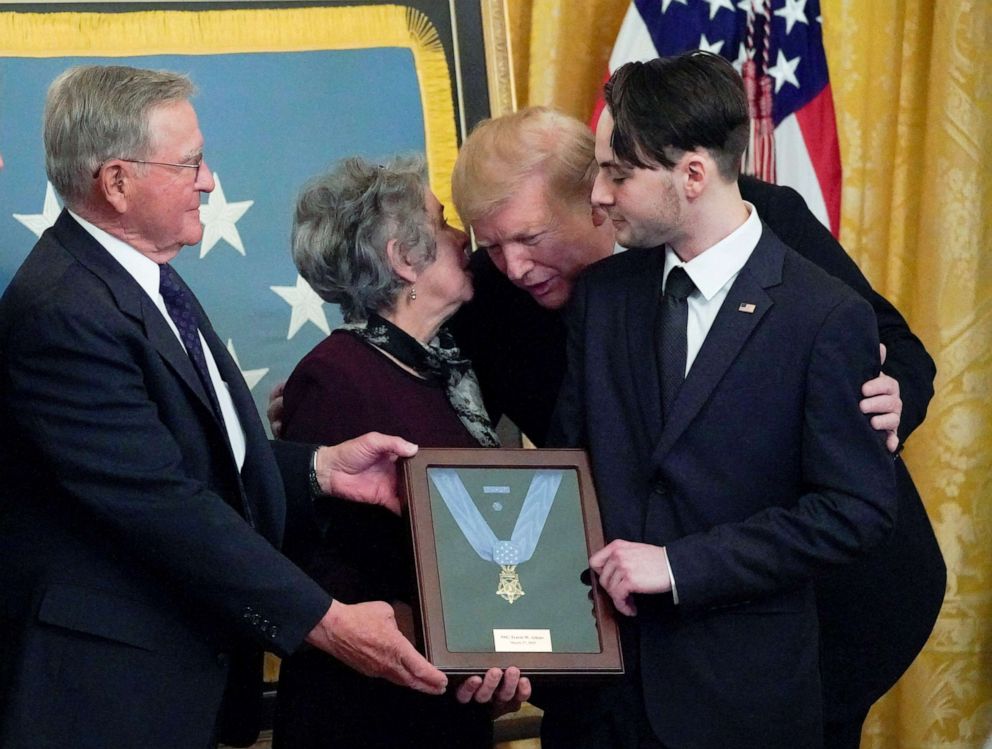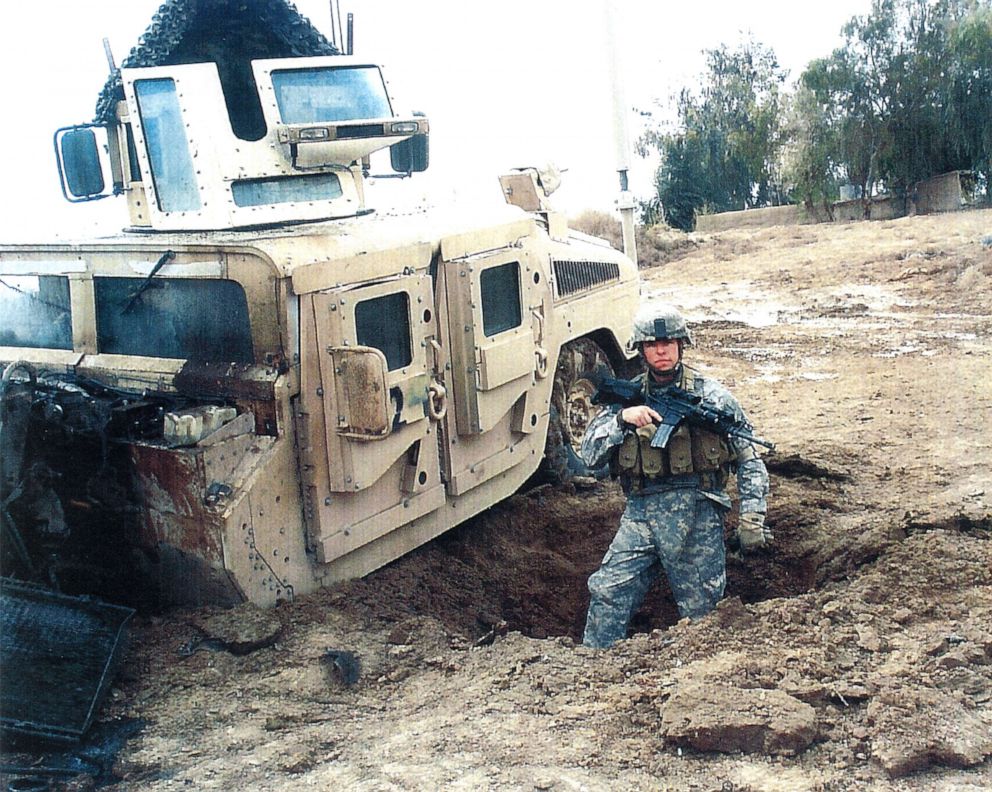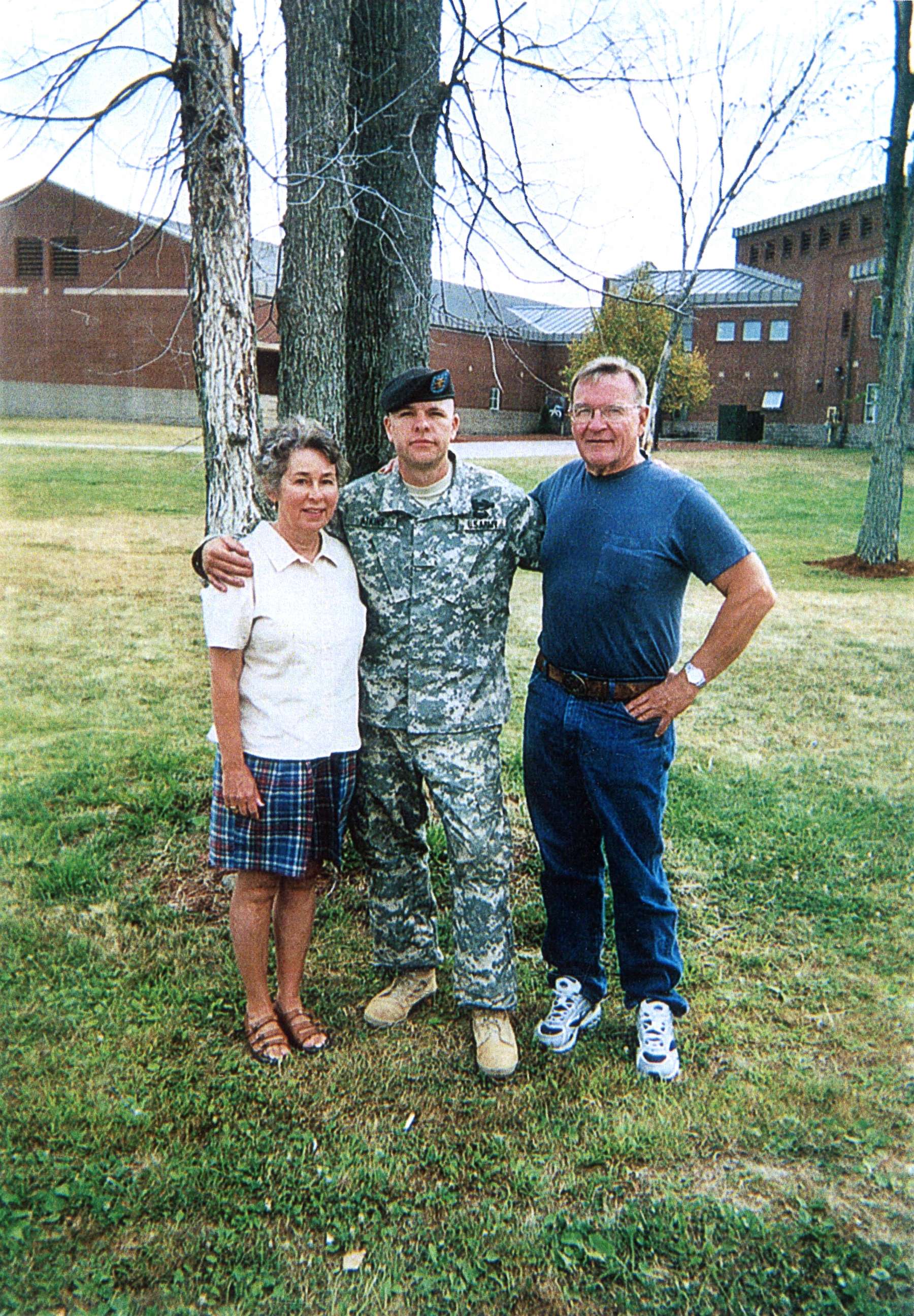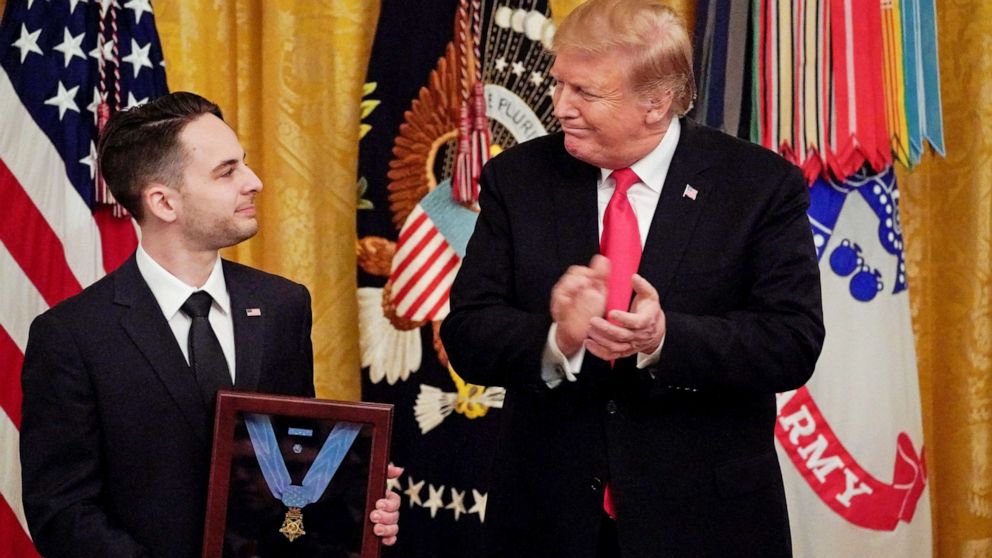Staff Sgt. Travis Atkins awarded Medal of Honor posthumously in White House ceremony
An Army staff sergeant who sacrificed his life to shield his fellow soldiers from a bomb blast in 2007, posthumously received the Medal of Honor on Wednesday during a ceremony at the White House.
President Donald Trump, highlighted Atkins' gallantry when describing to the crowd -- which included Atkins' family and the three soldiers Atkins saved -- how the then-31-year-old tackled a suicide bomber who detonated his explosive vest.

“In his final moments on Earth, Travis did not run,” Trump said. “He rose to his highest calling.”
Atkins’s son, Trevor Oliver, accepted the Medal of Honor on his father’s behalf. Addressing the dozens of other Army 10th Mountain Division soldiers in attendance -- some of whom served alongside his father -- Oliver thanked them for their kind words, which he said meant the most to him.
“When it comes to my dad, he always had the funniest stories about you guys,” Oliver said.

On June 1, 2007, Atkins was leading a team of three soldiers performing route security on a road near the town of Abu Samak, southwest of Baghdad, when they spotted several Iraqi men acting suspiciously.
After confronting the men, Atkins discovered that one was wearing explosives under his clothing. Atkins immediately tackled the man to prevent him from detonating a suicide vest packed with grenades.
"All of a sudden, I see Travis wrap the guy up and he lifted him up and he slams him to the ground," said Sgt. Sand Aijo who was one of the soldiers with Atkins that day. Aijo was one of several soldiers and family members who spoke with reporters at a Pentagon briefing Tuesday.

"The thing that became confusing is once they hit the ground, the way Travis began positioning his body, it just wasn't, it seemed strange to me," said Aijo. "I didn't know what was going on."
Aijo said that while Atkins was wrestling with the bomber, he saw Atkins position himself between his vehicle and the bomber, "and that's when the detonation happened."
In wrestling him to the ground, Atkins absorbed the force of the blast and saved the lives of his fellow soldiers.
"There is no doubt in my mind that when he dismounted that vehicle and encountered the two individuals, he knew instantaneously that he was dealing with a mortal threat," said retired Col. John Valledor, Atkins's battalion commander at the time.
And that given his experience "he did everything humanly possible physically to ensure that mortal threat did not affect his fellow soldiers."
Aijo agrees noting that the grenades in the suicide vest would have exploded seconds after a pin was pulled.
"He would have seen that it would have been clearly obvious," said Aijo. "He had that split second to make that decision and that was the decision he made, to sacrifice himself so that we could all live."

Valledor recommended Atkins for the Medal of Honor, but instead, he received the Distinguished Service Cross, the nation's second-highest award for valor.
"At the end of the day, what Travis did was above and beyond the call of duty," said Valledor. "It was recognized as such by others outside of the chain of command. And I thought that I would never hear about that again."
But in 2016 the military began a review of previous awards for valor and it was decided that Atkins' heroism merited the Medal of Honor.
"I am not surprised to hear what Travis did," said Jack Atkins, Atkins' father. "This award is one thing, the real award for us is that these guys showed up. And what they thought of him."
"There's nothing that we can say or do that will make up for what he did for us and that's the biggest honor and that's how he lived his life with me, as well," said Oliver.
"He was the greatest father as well as a soldier," said Oliver.
At the time of his death, the Bozeman, Montana, native was on his second deployment to Iraq, having served there in 2003 after the initial invasion.




